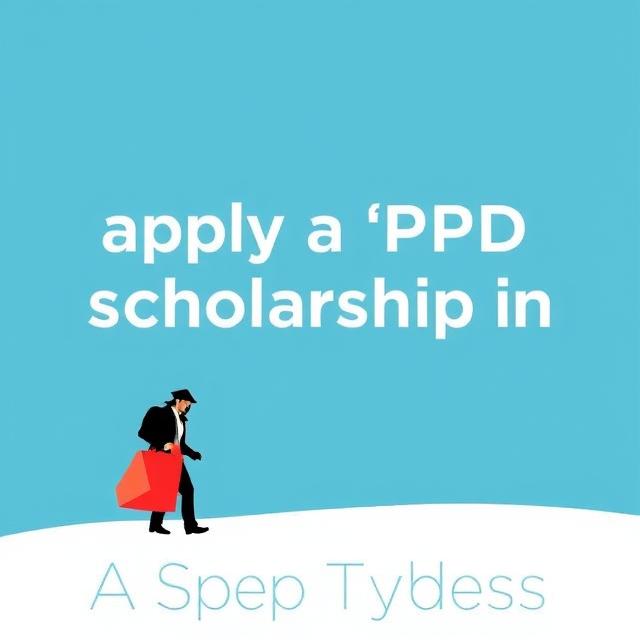Top 10 Scholarships in Canada for Immigrants with Low GPA: Turning Dreams into Reality
Canada, a nation renowned for its multiculturalism and commitment to education, welcomes immigrants from all corners of the globe. However, navigating the academic landscape, especially with challenges like a lower GPA, can be daunting. Fortunately, numerous scholarships are designed to support immigrants in pursuing their educational aspirations, even with a less-than-perfect academic record. These scholarships often prioritize factors like community involvement, personal circumstances, and future potential, making them accessible to a wider range of applicants.
This article highlights ten exceptional scholarships available in Canada that cater specifically to immigrants, acknowledging that academic achievements aren’t the sole determinant of success. These opportunities offer financial assistance, mentorship, and a chance to build a brighter future.
It’s crucial to remember: Scholarship eligibility criteria can change, so always verify the most up-to-date information on the scholarship provider’s website before applying.
1. RBC Immigrant Advantage Scholarship:
-
Focus: Supporting skilled immigrants pursuing further education or retraining in Canada.
-
Description: The RBC Immigrant Advantage Scholarship (no dedicated link available, search “RBC Immigrant Advantage Scholarship” on the RBC website) aims to help skilled immigrants overcome financial barriers to upgrading their skills or pursuing new educational pathways in Canada. While specific GPA requirements are not publicly stated, RBC emphasizes a holistic review of the application, considering the applicant’s background, goals, and financial needs. This makes it a potential option for those with a lower GPA who can demonstrate strong potential and a clear path to contributing to the Canadian economy.
-
Key Considerations: Highlight your previous work experience, skills, and how the desired education will benefit your career goals and Canada’s economy.
2. Windmill Microlending Loan Program:
- Focus: Providing affordable microloans to skilled immigrants to help them get licensed or certified in their field in Canada.
- Description: While not a scholarship in the traditional sense, Windmill Microlending (https://windmillmicrolending.org/) offers a unique and invaluable resource for immigrants. They provide low-interest microloans to help skilled newcomers cover the costs associated with licensing, professional development, and further education. This is especially beneficial for immigrants whose foreign credentials might not be fully recognized in Canada. GPA is not a primary factor in the loan application process.
- Key Considerations: Focus on showcasing your existing skills and qualifications, the specific licensing or certification you are pursuing, and how this will lead to employment in your field. Prepare a solid repayment plan to demonstrate your commitment.
3. The Ontario Student Assistance Program (OSAP):
- Focus: Providing financial aid to Ontario students, including eligible immigrants, based on financial need.
- Description: OSAP (https://www.ontario.ca/page/osap-ontario-student-assistance-program) is a comprehensive student loan and grant program available to eligible Ontario residents, including permanent residents and protected persons. While OSAP doesn’t have specific scholarships for immigrants with low GPAs, the needs-based assessment considers income, assets, and other factors, making it accessible to students with diverse academic backgrounds. Many immigrant students who qualify for OSAP receive a significant portion of their tuition covered.
- Key Considerations: Carefully review the eligibility criteria, complete the application accurately, and ensure you provide all required documentation. Remember that OSAP includes both loans and grants; you may be eligible for grants that don’t require repayment.
4. Vancouver Foundation Scholarships:
- Focus: Offering a range of scholarships for students in British Columbia, some of which are open to immigrants and prioritize community involvement and financial need.
- Description: The Vancouver Foundation (https://www.vancouverfoundation.ca/) manages a diverse portfolio of scholarships, many of which are available to students residing in British Columbia. While specific immigrant-focused scholarships might vary from year to year, the Vancouver Foundation often considers factors beyond GPA, such as financial need, community involvement, and personal circumstances. Carefully search their scholarship directory for options that align with your background and field of study.
- Key Considerations: Explore the Vancouver Foundation website thoroughly, utilizing the search filters to identify scholarships specific to your situation. Highlight your volunteer work, extracurricular activities, and any challenges you have overcome to pursue your education.
5. Immigrant and Refugee Women’s Program (IRWP) Bursary:
- Focus: Supporting immigrant and refugee women in pursuing post-secondary education in Canada.
- Description: Many organizations across Canada offer bursaries specifically for immigrant and refugee women. The Immigrant and Refugee Women’s Program (IRWP) (search for “Immigrant and Refugee Women’s Program Bursary” with your specific province/territory) is just one example. These bursaries often prioritize women who have overcome significant challenges, demonstrated leadership potential, and are committed to contributing to their communities. GPA requirements are typically flexible, focusing more on the applicant’s personal story and future aspirations.
- Key Considerations: Research local immigrant and refugee support organizations in your area to identify relevant bursary opportunities. Craft a compelling personal statement that highlights your resilience, goals, and how the bursary will help you achieve your educational dreams.
6. Scholarships Canada Database:
- Focus: A comprehensive online database of scholarships, bursaries, and grants available to Canadian students.
- Description: ScholarshipsCanada.com (https://www.scholarshipscanada.com/) is a valuable resource for all students seeking financial aid. Its vast database allows you to search for scholarships based on various criteria, including field of study, location, and background. While not exclusively for immigrants, the database includes many scholarships with broad eligibility criteria, making them accessible to newcomers.
- Key Considerations: Create a profile on ScholarshipsCanada.com and meticulously fill out all the relevant information. Use the search filters to narrow down the options and identify scholarships that align with your specific situation.
7. Disability Awards:
- Focus: Providing financial aid to students with disabilities pursuing post-secondary education in Canada.
- Description: If you are an immigrant with a disability, Disability Awards (https://disabilityawards.ca/) provides a curated list of awards and scholarships specifically for students with disabilities. These awards often consider the challenges faced by students with disabilities, which may include lower GPAs due to health or learning-related reasons. Many prioritize demonstrated resilience and academic potential.
- Key Considerations: Clearly and honestly describe your disability and how it has impacted your academic journey. Focus on your strengths, your commitment to your studies, and your future aspirations.
8. Community Foundation Scholarships:
- Focus: Offering a range of scholarships and bursaries administered by local community foundations across Canada.
- Description: Every province and even many cities in Canada have a Community Foundation dedicated to supporting local initiatives, including education. Many of these Community Foundations manage scholarships and bursaries, some of which are geared toward specific groups or fields of study. These scholarships often prioritize local residents and may consider factors beyond GPA. Search for “[Your City/Province] Community Foundation” to find the relevant organization.
- Key Considerations: Identify the Community Foundation serving your area and explore their scholarship opportunities. Highlight your connection to the local community and your commitment to contributing to its growth.
9. TD Scholarship for Community Leadership:
- Focus: Recognizing and supporting students who have demonstrated exceptional community leadership.
- Description: While a high GPA isn’t a specific requirement, the TD Scholarship for Community Leadership (no dedicated link available, search “TD Scholarship for Community Leadership” on the TD website) seeks students who have made a significant positive impact on their communities. If you have actively participated in volunteer work, social activism, or other initiatives that have benefited others, this scholarship could be a great fit, even if your GPA is not exceptionally high. Immigrant experiences and contributions to Canadian communities are often highly valued.
- Key Considerations: Showcase your leadership skills, your passion for making a difference, and the tangible impact you have had on your community. Provide specific examples and quantify your achievements whenever possible.
10. Scholarships Offered by Your Chosen Institution:
- Focus: Directly contacting the financial aid or scholarship office of the college or university you plan to attend.
- Description: Many colleges and universities offer their own internal scholarships and bursaries. These awards often have specific eligibility criteria, and some may be designed to support students from diverse backgrounds, including immigrants. Directly contacting the institution’s financial aid office is crucial to learn about available options and application processes.
- Key Considerations: Visit the financial aid section of your chosen institution’s website and contact the office directly to inquire about scholarships for immigrants or students with lower GPAs. Inquire about the possibility of submitting a personal statement explaining any circumstances that may have impacted your academic performance.
Final Thoughts:
While a lower GPA may present a challenge, it doesn’t have to be a barrier to achieving your educational goals in Canada. By researching available scholarships, highlighting your strengths, and crafting compelling applications, you can increase your chances of securing financial aid and realizing your dreams of a brighter future. Remember to be persistent, proactive, and believe in your potential. Good luck!



